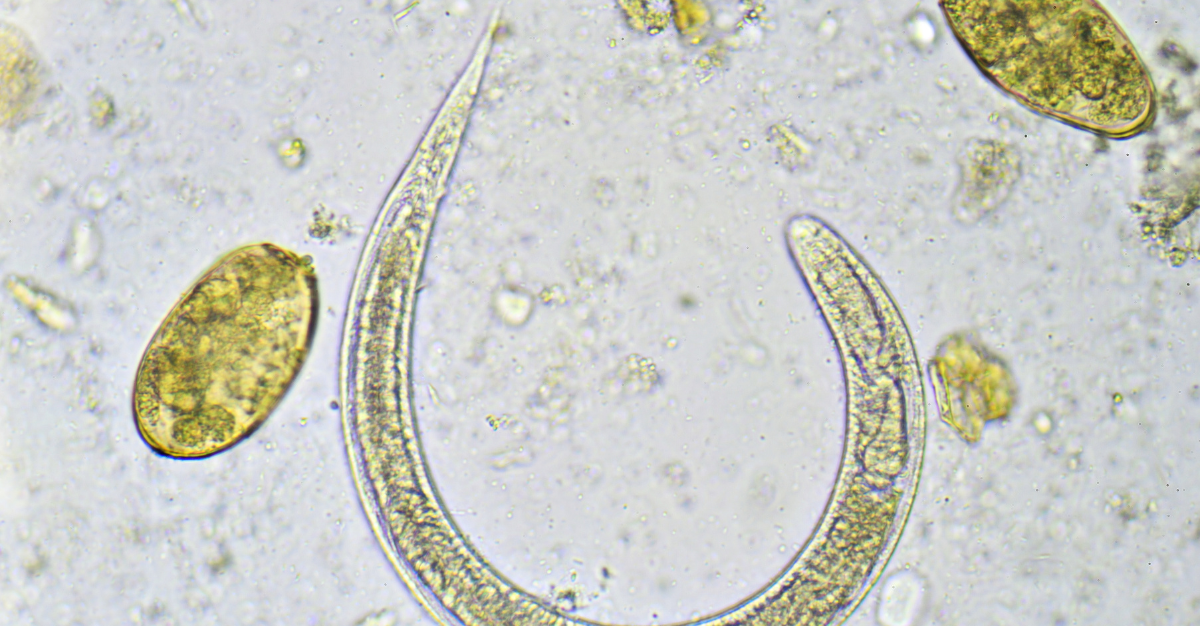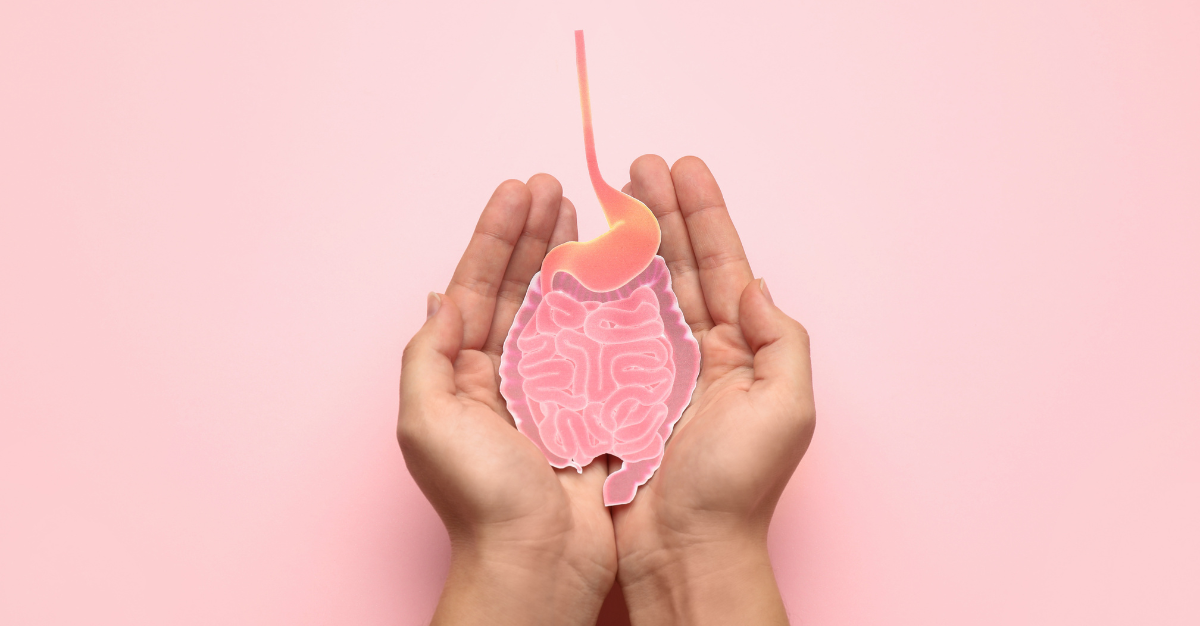
Did you shudder a bit when you read the word “parasites” in the title? It’s not a pleasant topic! However, intestinal parasites are more common than many people realize.
Parasites are living organisms that live off of their human hosts. There are a number of possible types of parasites, and many can have a negative impact on your health. Although parasites are a bigger problem in developing countries, parasitic infections occur surprisingly often in North America. Consider these stats:
● In the U.S. alone, over 60 million people are infected with the parasite toxoplasma gondi.
● Over 1,000 people are hospitalized due to cysticercosis, an infection caused by parasitic tapeworms.
● Over 300,000 Americans have Trypanosoma cruzi infections. This is the parasite that causes Chagas disease.
Some parasites can cause a number of serious health problems, including blindness, pregnancy complications, and even death. Others cause symptoms that you may attribute to something else entirely. This is why it’s incredibly important to work with a healthcare practitioner as soon as you suspect something is off with your health to get to the root cause of any imbalance.
Worried About Parasites? Watch Out For These Symptoms
Parasites can live within you without showing any symptoms for many years - awful, right? However, many will give signs you shouldn’t ignore. Some general things to watch for include:
● Digestive issues such as diarrhea, constipation, or gas
● Skin disorders like eczema, hives, or unexplained chronic itching
● Fatigue, even after a good night’s sleep
● Grinding your teeth while sleeping
● Nutrient deficiencies, especially anemia
● Anxiety (possibly due to nutrient deficiencies)
● Muscle or joint pain
● Itching around your rectum
Diagnosing and Flushing Parasites Out Of The Body
Because of the broad range of symptoms, many of which could be associated with other conditions, it can be tricky to identify parasites. A common first step is a stool test to check for the presence of parasites.
In conventional medicine, antiparasitic drugs, such as praziquantel and mebendazole, are the first line of defense.
In integrative medicine, many practitioners will use a combination of antiparasitic herbs plus nutritional protocols to make the gut an inhabitable environment for the parasites.
Some of the herbs used to treat intestinal parasites can interfere with prescription medications, therefore it’s important to work with a knowledgeable healthcare practitioner.
Parasite Cleansing
Following a parasitic cleanse can help rid your body of parasites. During the cleanse, you’ll combine nutritional strategies with herbal remedies, with the aim of expelling parasites from your body and creating and creating an inhospitable environment for further growth.
During the cleanse, it’s important to maintain a well-balanced diet to maintain good health, and focus on natural, unprocessed foods. Eating a lot of fiber can contribute to regular bowel movements to flush out parasites and contribute to a healthy gut biome. Avoiding sugar is also a good strategy to maintain a healthy gut.
The exact approach will be determined by your health practitioner after testing. A parasite cleanse could include the following in your diet:
● Foods with antiparasitic properties like onions, garlic, and honey.
● Foods high in zinc, such as seafood, whole grains, and legumes.
● Fermented foods like sauerkraut and natural yogurt will also contribute to healthy gut bacteria.
● Foods high in vitamin A, such as carrots, sweet potatoes, cantaloupe, and mangos.
● Foods high in vitamin C to strengthen your overall well being and immunity.
● Herbs that have proven effective in treating parasites include. oregano, thyme, rosemary, marjoram, and cumin
And of course, it goes without saying that you must avoid undercooked meat or seafood during the cleanse.
Supplements with anti-parasitic properties that could be incorporated include:
● Probiotics to maintain a healthy level of beneficial bacteria. Again, be sure to work with a practitioner to determine the best type of probiotic for you.
● Berberine, which is a compound found in many plants.
● Research shows papaya seeds may play a role in eliminating parasites.
● Pumpkin seeds are another commonly used parasite remedy.
● Wormwood has been used to get rid of parasites, perhaps contributing to its name.
Preventing Parasites
Prevention is the best way to protect yourself from parasites! Here are some simple everyday practices to keep in mind:
● Wash your hands frequently - and always after touching raw food, using the bathroom, changing cat litter or dealing with animal feces. If you are pregnant, avoid changing cat litter.
● Drink clean water. Don’t drink from lakes, ponds, or creeks, even if they look clean.
● Cook food to the correct temperature.
● Approach raw fish sushi with caution. A recent study found a 283% increase in the prevalence of parasitic worms in sushi since the 1970s. It’s worth cutting a piece of sushi in half before eating to check.
● Some studies suggest a diet rich in vitamin A and the minerals selenium and zinc may improve your body's natural defense against parasite infection.
● Always wear a condom if you aren’t fully confident a sexual partner is free of STIs.
Don’t be embarrassed to talk about parasites if you have any concerns at all! The important thing is to start a smart treatment plan to get rid of them for good, so please don’t hesitate to make an appointment. Give us a call!
Sources:
CBS News, “CDC warns of common parasites plaguing millions in the U.S.https://www.cbsnews.com/news/parasites-causing-infections-in-the-us-cdc-says/
Howell, J. and Brown, G. (2008), Gastrointestinal: Beef tapeworm (Taenia saginata). Journal of Gastroenterology and Hepatology, 23: 1769-1769. https://doi.org/10.1111/j.1440-1746.2008.05661.x
Iturbe Cossío TL, Montes Luna AD, Ruiz Mejia M, Flores Ortega A, Heredia Cárdenas R, Romero Núñez C. Risk factors associated with cat parasites in a feline medical center. JFMS Open Rep. 2021 Aug 18;7(2):20551169211033183. doi: 10.1177/20551169211033183. PMID: 34422278; PMCID: PMC8377321.
CNN, “Men wash their hands much less often than women, and that matters more than ever.
https://www.cnn.com/2020/04/01/health/handwashing-gender-gap-wellness/index.html
Fiorenza, EA, Wendt, CA, Dobkowski, KA, et al. It’s a wormy world: Meta-analysis reveals several decades of change in the global abundance of the parasitic nematodes Anisakis spp. and Pseudoterranova spp. in marine fishes and invertebrates. Glob Change Biol. 2020; 26: 2854–2866. https://doi.org/10.1111/gcb.15048
Okeniyi JA, Ogunlesi TA, Oyelami OA, Adeyemi LA. Effectiveness of dried Carica papaya seeds against human intestinal parasitosis: a pilot study. J Med Food. 2007 Mar;10(1):194-6. doi: 10.1089/jmf.2005.065. PMID: 17472487
Krstin S, Sobeh M, Braun MS, Wink M. Anti-Parasitic Activities of Allium sativum and Allium cepa against Trypanosoma b. brucei and Leishmania tarentolae. Medicines (Basel). 2018 Apr 21;5(2):37. doi: 10.3390/medicines5020037. PMID: 29690511; PMCID: PMC6023319.
Travers MA, Florent I, Kohl L, Grellier P. Probiotics for the control of parasites: an overview. J Parasitol Res. 2011;2011:610769. doi: 10.1155/2011/610769. Epub 2011 Sep 28. PMID: 21966589; PMCID: PMC3182331.
Strothmann AL, Berne MEA, Capella GA, de Moura MQ, da Silva Terto WD, da Costa CM, Pinheiro NB. Antiparasitic treatment using herbs and spices: A review of the literature of the phytotherapy. Braz J Vet Med. 2022 Sep 11;44:e004722. doi: 10.29374/2527-2179.bjvm004722. PMID: 36381138; PMCID: PMC9652050.
Long KZ, Rosado JL, Montoya Y, de Lourdes Solano M, Hertzmark E, DuPont HL, Santos JI. Effect of vitamin A and zinc supplementation on gastrointestinal parasitic infections among Mexican children. Pediatrics. 2007 Oct;120(4):e846-55. doi: 10.1542/peds.2006-2187. PMID: 17908741.
Mahmoudvand H, Saedi Dezaki E, Sharififar F, Ezatpour B, Jahanbakhsh S, Fasihi Harandi M. Protoscolecidal Effect of Berberis vulgaris Root Extract and Its Main Compound, Berberine in Cystic Echinococcosis. Iran J Parasitol. 2014 Oct-Dec;9(4):503-10. PMID: 25759731; PMCID: PMC4345089.
Beshay EVN. Therapeutic efficacy of Artemisia absinthium against Hymenolepis nana: in vitro and in vivo studies in comparison with the anthelmintic praziquantel. J Helminthol. 2018;92(3):298-308. doi:10.1017/S0022149X17000529
Grzybek M, Kukula-Koch W, Strachecka A, et al.
Evaluation of anthelmintic activity and composition of pumpkin (cucurbita pepo L.) seed extracts-In vitro and in vivo studies. Int J Mol Sci. 2016;17(9):1456. doi:10.3390/ijms17091456


- Mon - Thu
- -
- Friday
- Appointment Only
- Sat - Sun
- Closed
(321) 444-6750
fax: (321) 444-6755
email: office@restoringhealth.center
475 Maitland Ave
Altamonte Springs, FL 32701

